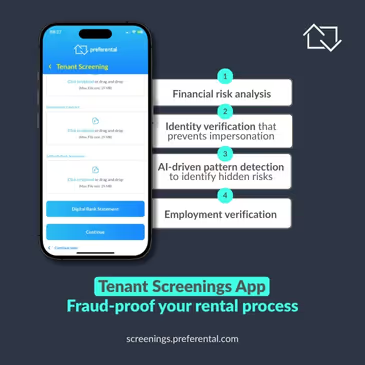Rentvesting: The strategic Property Investment trend shaping South Africa’s Future
Trend Highlights
- ‘Rentvesting’ lets buyers live where they want while investing in affordable areas, without compromising their lifestyle.
- South Africa’s buy-to-let market is booming, with 32% of buy-to-let applications from the Western Cape in Q1 2025.
- Grant Smee highlights global trends and local strategies driving the rentvesting boom, especially among younger generations.
‘Rentvesting’ is gaining ground as more people explore alternative paths to property ownership amid the growing buy-to-let boom.
South Africa’s buy-to-let market has continued its upward trajectory since its resurgence in 2022. ooba Home Loans reported that 32% of all buy-to-let applications in Q1 ’25 derived from the country’s most expensive province, the Western Cape, a region that Grant Smee, CEO of Only Realty Group, believes accounts for the majority of ‘rentvesting’ activity.
“Rentvestors adopt a unique strategy: they buy investment properties in affordable areas while renting homes in locations where they prefer to live and work. This approach enables them to maintain their desired lifestyle without sacrificing long-term investment goals, making ‘rentvesting’ a great step onto the property ladder.”
He explains that while traditional property investors are widely recognised, less is understood about ‘rentvestors’, especially given that this emerging trend is being driven by younger generations like Gen Z and early millennials, many of whom are just entering the property market.
However, he does point to anecdotal evidence suggesting that established property investors tend to own a home along with an investment property and/ or holiday home.
"According to figures from Investec, of the 6.8 million homeowners in the country, around 1 million own more than one property. Of these, approximately 40% are aged between 36 and 49, while 38% fall within the 50 to 64 age group.”
Meanwhile, the rental market remains buoyant, registering some of the highest prices in recent years coupled with improved tenant reliability.
Live where you love, Invest where you can afford
“Despite a few interest rate cuts, it’s still cheaper to rent than buy. The reality is that many ‘rentvestors’ wouldn’t typically be able to afford the repayments on the properties that they currently rent. Adding to this is costs such as levies, maintenance and municipal rates – costs that the landlord would normally cover.”
Doing the math, Smee explains that purchasing a one-bedroom property on Cape Town’s sought-after Atlantic Seaboard would cost a homeowner upwards of R2 million, equating to R20,644 per month (over 20 years, no deposit at 11%). In contrast, the average rental for a one-bedroom property starts from R12,000.
“A ‘rentvesting’ strategy is all about making savvy investments without impacting your quality of life. Many young ‘rentvestors’ still want to live in areas like the Atlantic Seaboard, but they simply cannot afford to buy here.”
Global trend shows that almost half of young buyers want to adopt ‘Rentvesting’ Strategy
Smee believes that this trend is sparked by a growing global trend, with Australia currently leading the way and the US gaining ground.
“According to Westpac’s 2025 Home Ownership Report, over half (54%) of Australian first-time buyers are considering ‘rentvesting’, marking a 4% increase from the previous year. In the US, a study revealed that 43% of millennials and Gen Zs were considering buying an investment property, with 72% open to purchasing in a different state than where they reside,” he says.
“Albeit at a slower adoption rate, South Africa is known to mirror global trends and with interest rates holding steady, we have noticed a marked increase in young investors. In addition, rental property enquiries remain steady, indicating strong demand for both.”
Four Smart Moves for Rentvestors
Smee shares a few practical insights for those looking to adopt a ‘rentvesting’ strategy:
- Do the Math
“While this goes without saying, you need to clearly understand what you are purchasing versus what you are renting. Make sure that both make financial sense, and that the costs at least offset one another,” says Smee. - Do Not Overinvest in a Rental:
“Be sure to balance your lifestyle desires with what makes sense financially. Do not overcapitalise in a rental because, unlike an owned property, you will never make this money back.” - Understand the Full Implications of Homeownership
“There is always a likelihood that a tenant moves out or that you struggle to secure a tenant so make sure that you can cover the rent in times of emergency. Also ensure that you have set aside enough of the upkeep of the property. When budgeting, be sure to factor in levies, security, special levies, rates, interest rate increases etc.” - Remain Objective
“When balancing renting with owning, it’s important to be objective. Purchase a property in an area that yields high demand and good returns, and make sure that you don’t overspend on it.
Look online to see what’s available, what’s been sold (and rented out) and find out what the purchase history of the property is” he concludes.













.avif)


.avif)

.avif)




.svg)





























.avif)
